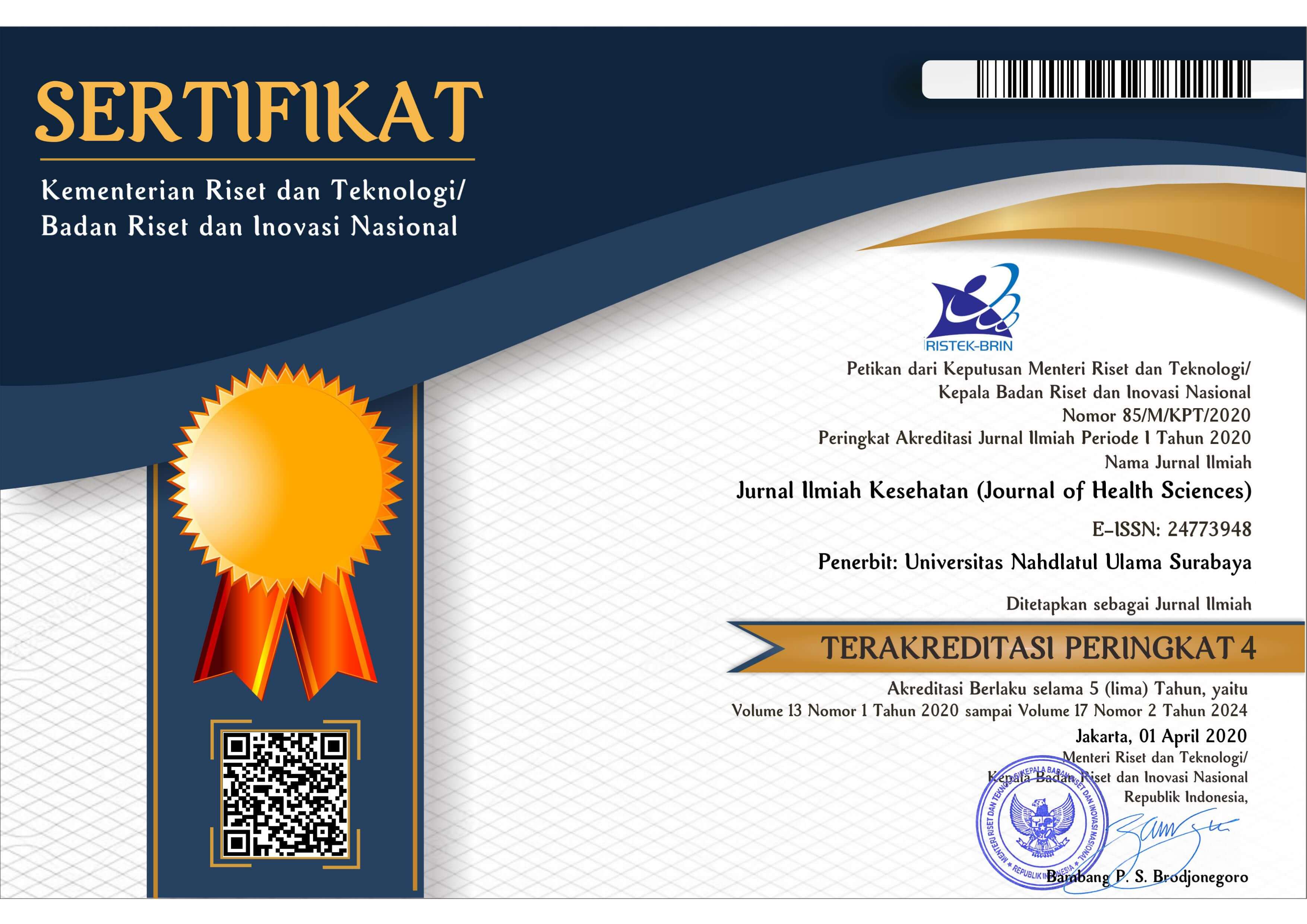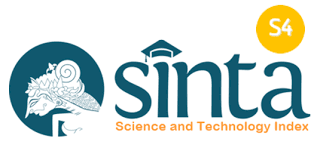Surveillance Implementation Of Hiv/Aids In Jember Regency
DOI:
https://doi.org/10.33086/jhs.v14i1.1646Keywords:
Surveilans , HIV/AIDS, pelaksanaan, puskesmasAbstract
The number of people living with HIV/AIDS in Indonesia is increasing every year. HIV/AIDS surveillance is the most effective way to control the spreading of HIV/AIDS cases. This study aims to describe the implementation of HIV/AIDS surveillance in Jember. This paper was a descriptive study that included all public health centers (PHCs) conducting HIV/AIDS surveillance. The sample was the Jember District Departement of Health Office and four PHCs using purposive sampling. Variables in this study were input, process, and output. The data was obtained from an interview using a questionnaire. The results indicated that the four PHCs did not have an epidemiologist. Data collection mostly derived from Voluntary Counseling and Testing (VCT) and mobile VCT. Processing HIV/AIDS surveillance data utilized the HIV/AIDS and STDs Information System (SIHA) application and validated by the District Department of Health Office once a month. However, only two PHCs conducted analysis and data interpretation. Dissemination was only done by the District Departement of Health Office and 2 out of 4 PHCs. Hence, the components and process of surveillance needed to be optimized.
Downloads
References
WHO. Data and Statistic HIV/AIDS [Internet]. WHO. 2018 [cited 2020 Jan 2]. Available from: https://www.who.int/hiv/data/en/
Kemenkes RI. Data dan Informasi Profil Kesehatan Indonesia 2017. Jakarta; 2018.
Kemenkes RI. Profil Kesehatan Indonesia Tahun 2016. Jakarta; 2017.
Dinas Kesehatan Provinsi Jawa Timur. Profil Kesehatan Provinsi Jawa Timur Tahun 2016. Surabaya; 2017.
Dinas Kesehatan Kabupaten Jember. Laporan Kasus HIV/AIDS Kabupaten Jember Tahun 2004 – bulan April 2018. Jember; 2018.
Candra B. Ilmu Kedokteran Pencegahan dan Komunitas. Jakarta: EGC; 2009.
Amiruddin R. Surveilans Kesehatan Masyarakat. 1st ed. Jakarta: Trans Info Media; 2017.
Kemenkes RI. Keputusan Menteri Kesehatan Republik Indonesia No. 1116 Tahun 2003. Indonesia: Kementrian Kesehatan Republik Indonesia; 2003.
WHO. Kajian Nasional Respon HIV di Bidang Kesehatan Republik Indonesia [Internet]. Jakarta; 2017. Available from: https://www.who.int/docs/default-source/searo/indonesia/non-who-publications/2017-hiv-country-review-indonesia-bahasa.pdf?sfvrsn=76cca118_2
Kemenkes RI. Peraturan Menteri Kesehatan Republik Indonesia Nomor 45 Tahun 2014. Indonesia: Kementrian Kesehatan Republik Indonesia; 2014.
Chandra H, Sholikhah. The HIV/AIDS Surveilans System in Gresik Health Office. Heal Notions. 2018;2(12).
WHO. Data Quality Assesment of National and Partner HIV Treatment and Patient Monitoring System. Geneva; 2018.
Downloads
Published
How to Cite
Issue
Section
License
Copyright (c) 1970 irma Prasetyowati, adistha eka noveyani, Ni’mal Baroya

This work is licensed under a Creative Commons Attribution-ShareAlike 4.0 International License.




















